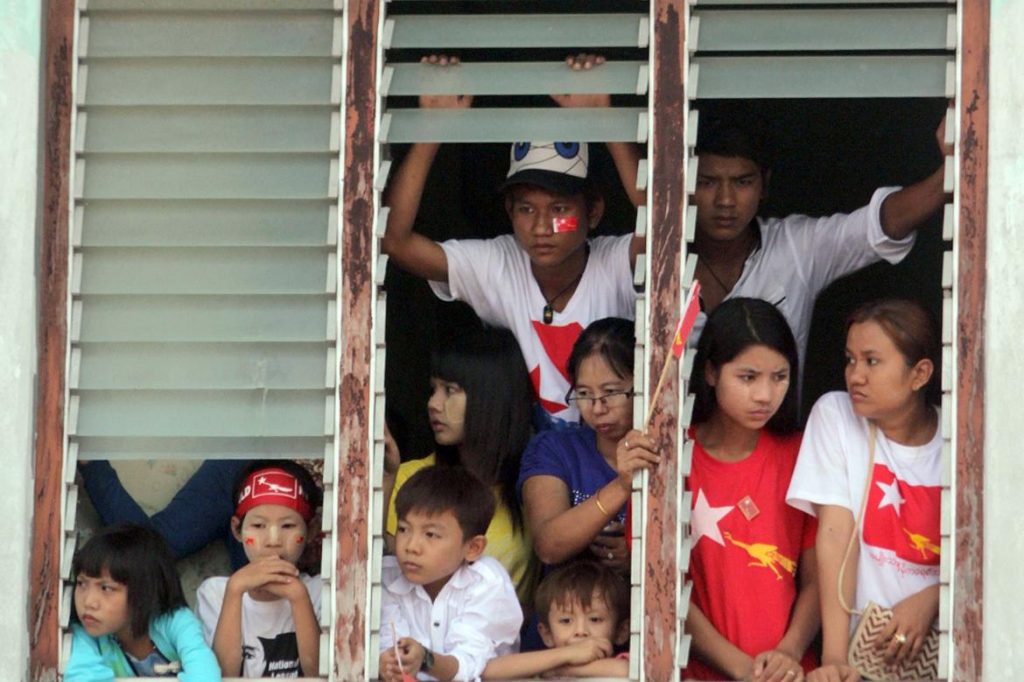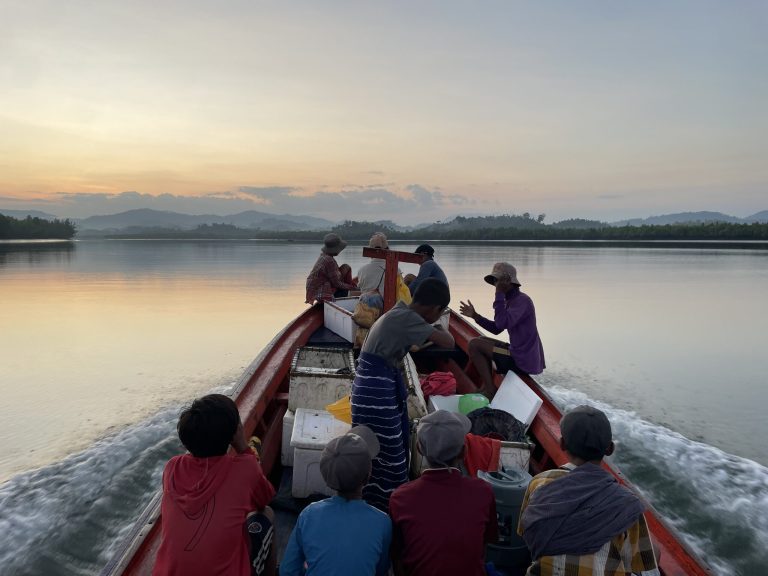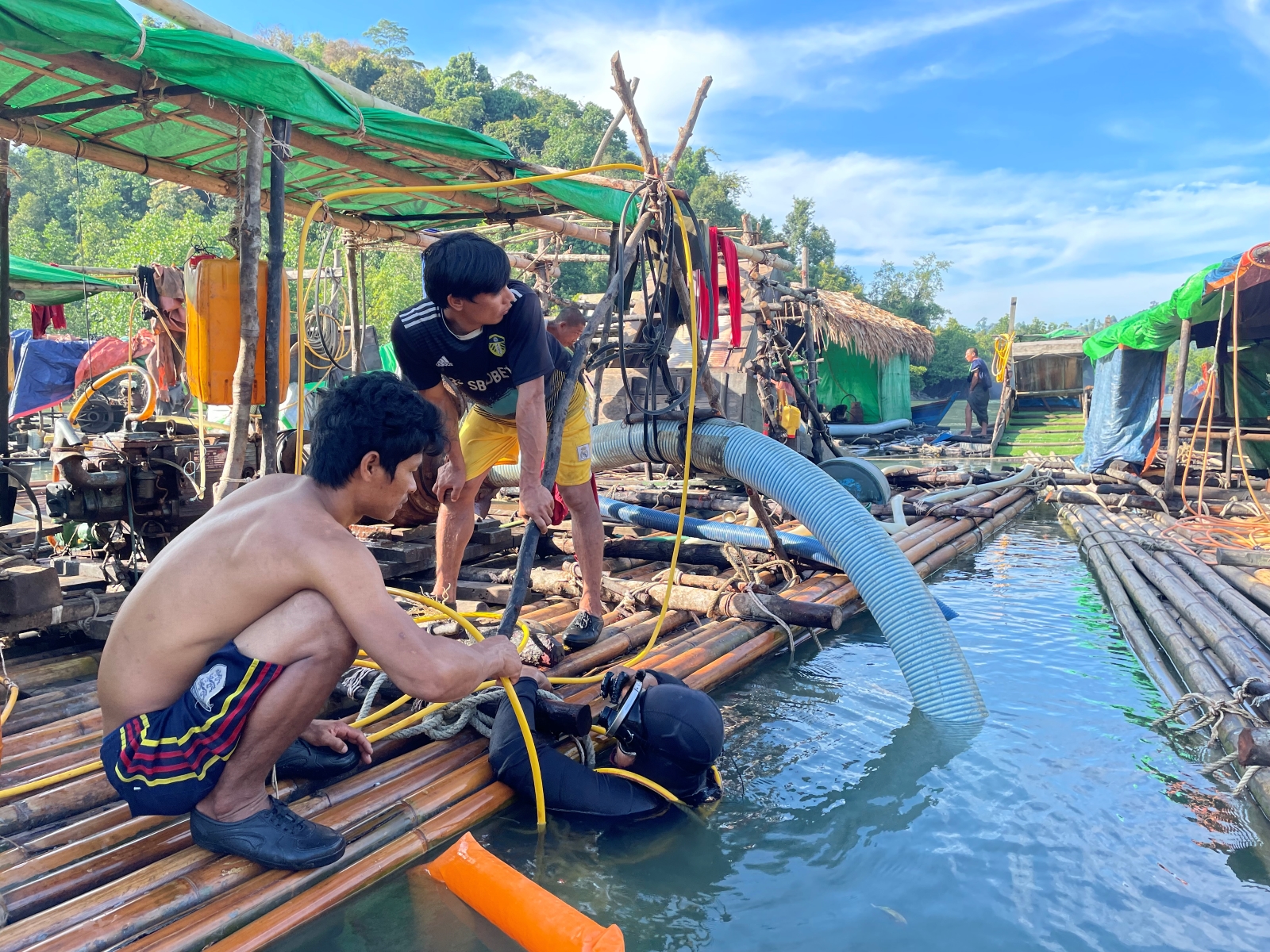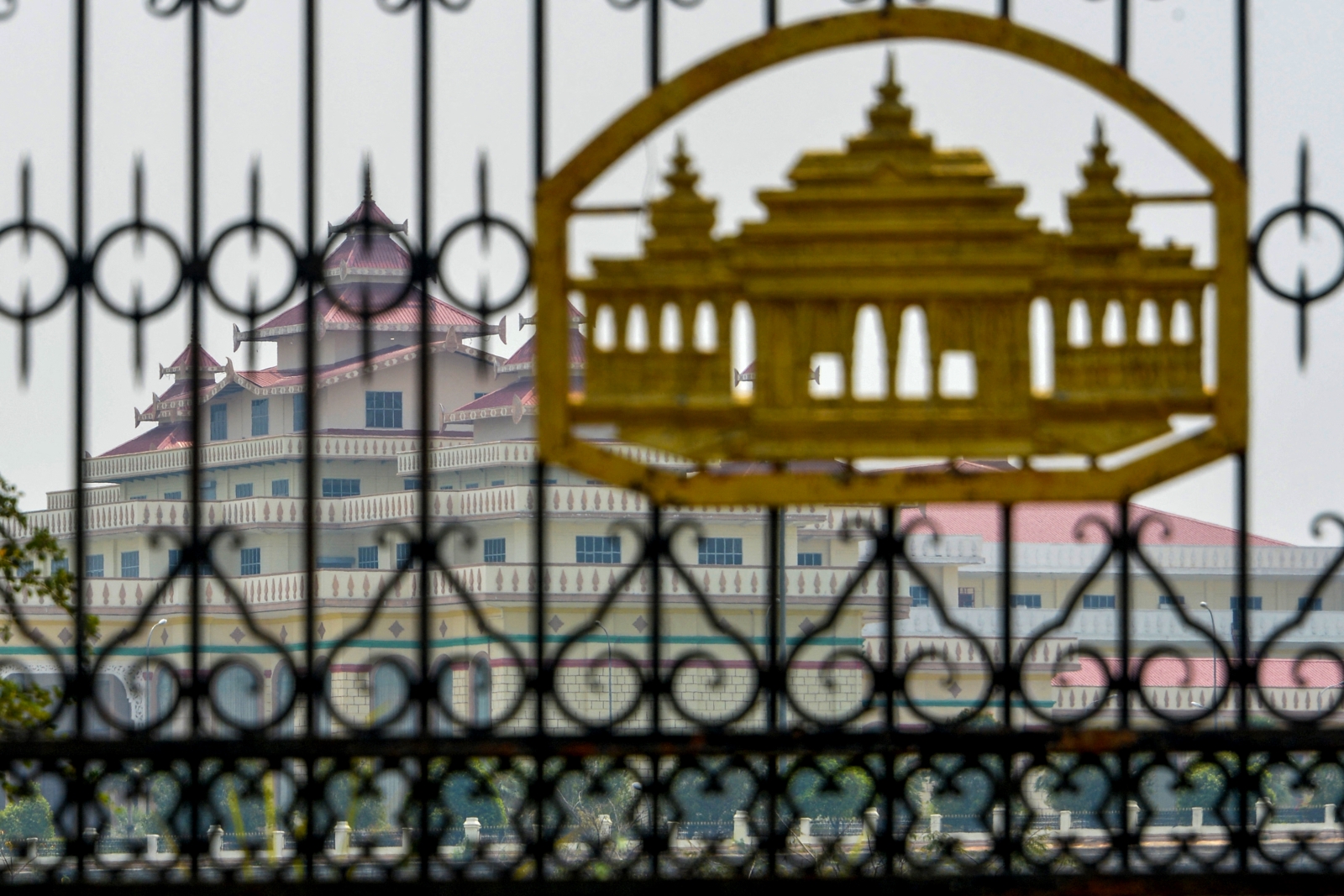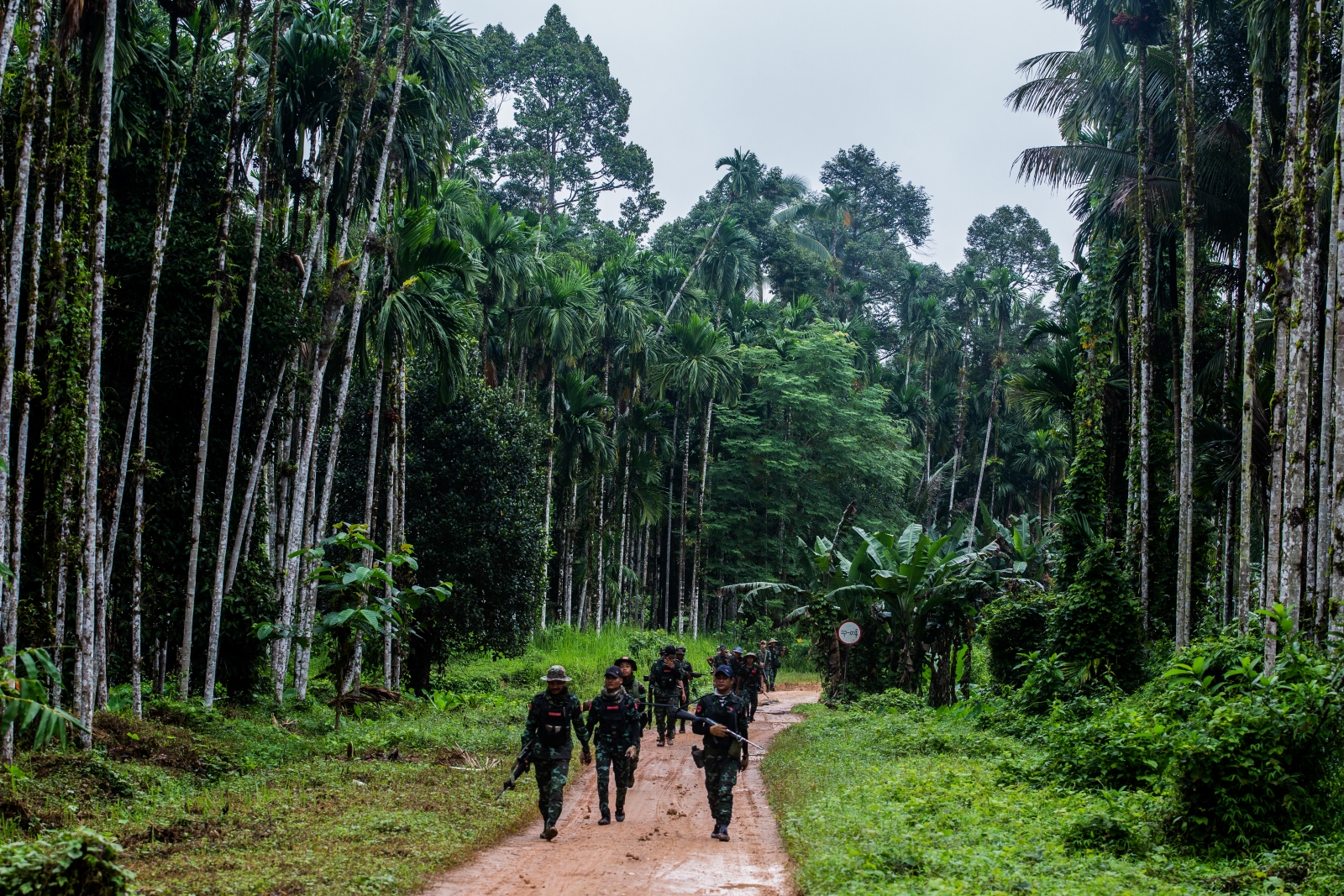Campaigning has been subdued in Tanintharyi Region, where there’s disquiet over voter lists and a lack of knowledge among the public about the electoral process.
In Myeik, Tanintharyi Region, and the regional capital, Dawei, election fever has yet to ignite. The election campaign officially started on September 8, but in mid-October the streets of the southern cities were largely quiet. There were no loudspeakers blaring party songs and no frantic canvassing. Only the signboards of the National League for Democracy and the Union Solidarity and Development Party indicated that Myanmar is going to the polls on November 8.
As in the rest of the country the political field is diverse. The ruling USDP and the NLD are contesting most constituencies. Also on the ballot are the Democratic Party, the National Development Party, chaired by former Presidential advisor U Nay Zin Latt, the National Unity Party, the National Democratic Force and the Dawei Nationalities Party.
A notable absence on the ballot in Tanintharyi this time is former President’s Office Minister U Soe Thane. He won a seat in remote Kyunsu constituency in 2010, which was taken by the NLD in the 2012 by-elections. U Soe Thane is running as an independent for the Amyotha Hluttaw seat of Bawlakhe in Kayah State. His chances are good, as only 5,000 eligible voters live in Bawlakhe and the former minister has reportedly spent lavishly, handing out satellite dishes to residents and organising a football match.
The Tanintharyi chairman of the National Unity Party, U Tun Lwin, will run in Dawei constituency for the Amyotha Hluttaw. “We are fielding four candidates in Dawei,” he said. “At the moment we are campaigning in all neighbourhoods and villages within the rules and regulations of the Union Election Commission. We haven’t broken the rules.”
The party is running on a platform of helping workers and farmers. “We are trying to assist in resolving land grab issues,” U Tun Lwin told Frontier.
Support more independent journalism like this. Sign up to be a Frontier member.
The main opposition party NLD is contesting 43 constituencies in Tanintharyi: 10 Pyithu Hluttaw seats, 12 Amyotha Hluttaw seats, 20 regional parliament seats and one seat for a member of the Kayin ethnic group. Its candidates are barred from talking to the media by the party leadership.
One of the regional contenders in Dawei is the Dawei Nationalities Party. The party was born out of the civil society movement opposed to the Dawei deep sea port and Special Economic Zone. Before the 2014 census, the DNP advocated for Tanintharyi residents to list their ethnicity as Dawei rather than Bamar. The Dawei people have a thick accent that even Bamar find hard to understand.
DNP chairman and Pyithu Hluttaw candidate in Dawei, U Aye Min, told Burma News International that campaigning had been smooth, but that the Dawei deep sea port remains an issue. “They still haven’t given up and are still going forward,” said U Aye Min.
“There is no transparency with how they will carry out their work and what benefits the local residents will receive. If a project is to be carried out, they need to negotiate with the local residents. We’re not destroying the project. We want the project to be carried out in line with the law. The main problem is damaging farm land. If the local residents have to relocate to another area, they need plots of land. The government should carry this out.”
The USDP campaign is in full tilt, said regional secretary U Kyaw Win. The party is holding rallies and is explaining its policies to the people. The ruling party is quite unpopular nationally. How is the Dawei chapter of the USDP coping?
“The USDP has been changing in the last few years,” U Kyaw Win said. “If we get the vote of the people we can do even more to develop the region. We will give farmers and labourers more opportunities and we plan to work together with local people and the Department of Fisheries. There’s already a rule to release pregnant fish. We will do more to help fishermen.”
Parties active in Tanintharyi complain that it is hard to reach out to voters. Many of them live on remote islands and communications in the region are poor. The polling will take place at the height of the fishing season when many of the region’s 12,000 fishing boats will be at sea. The regional election commission has tried to accommodate fishermen by declaring November 8 a ‘no fishing day’.
“We are not satisfied with the amount of errors in the list. Voters in Dawei are unhappy about it and our party is unhappy as well. The election commission purposely created these errors in the voter list.”
Daw Ni Ni Too owns a teashop on Masampa, a small island off Myeik. She plans to vote and makes no secret of her preferences. “I checked my name on the voter list and I intend to vote for the Lady,” she said, as she served coffee and snacks to a customer. “She is weak, because she is female. Therefore she needs my support.”
Boat driver Ko Maung Aye, a Myeik resident, will also vote for the NLD, although he had not checked if his name is on the voter list. “I want to give the NLD the authority to govern. I don’t expect anything to change after the elections. I’m a bit worried about election day. There might be violence across the country. Some people in Myanmar are very extreme in their political views.”
Daw Ni Ni Too and Ko Maung Aye did not know the name of the NLD candidate in their constituency. “I will just look for the NLD on the ballot paper,” Ko Maung Aye said.
The USDP’s U Kyaw Win admitted that voter education was poor. “There is a need to educate people about the electoral process,” he said. “We are working on this with the election commission. Even though we had elections in 2010 and 2012, people’s knowledge is still weak.”
Weak is a term that is also applicable to the voter lists, said the NUP’s U Tun Lwin.
“We are not satisfied with the amount of errors in the list,” he said. “Voters in Dawei are unhappy about it and our party is unhappy as well. The election commission purposely created these errors in the voter list. They made the process confusing. There were different stages of making adjustments to the list, but after every round of corrections names show up in different places, so it is very hard to check the list.”
U Tin Lwin has completely lost faith in the election commission.
“The election commission invited a lot of international monitors, pretending they are honest and transparent. In fact, they are not,” he said.
The USDP’s U Kyaw Win disagreed. “I can’t make a comment on what other parties have said, but I can assure you that there won’t be any issues with the voting list.”
He is also confident that the USDP, which swept the polls in the Tanintharyi in 2010 (amid widespread allegations of tampering) will repeat that feat. “I expect us to beat the NLD. I have full confidence in the election candidates of the USDP.”


